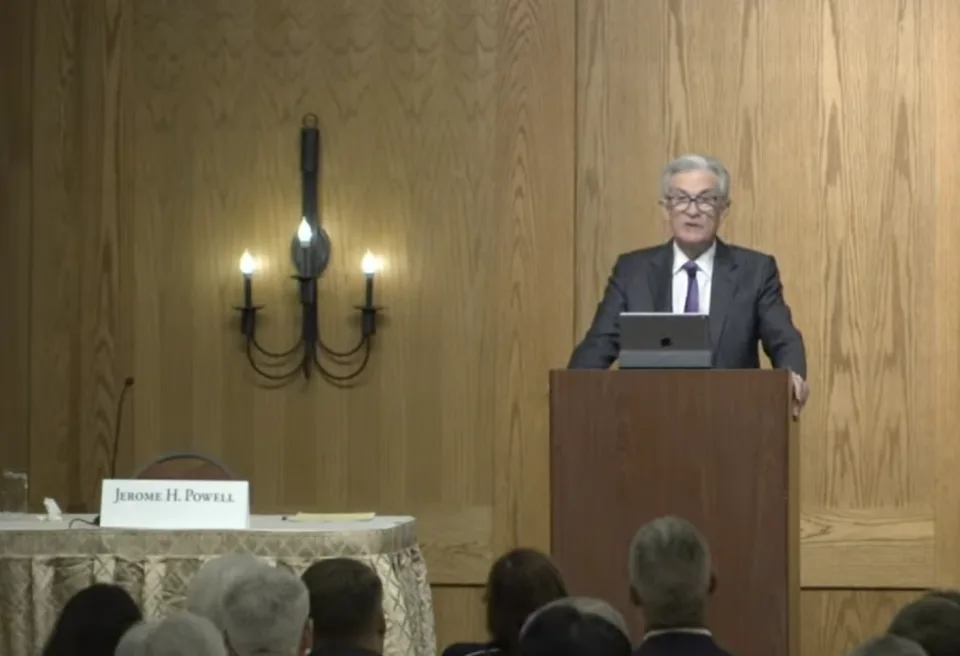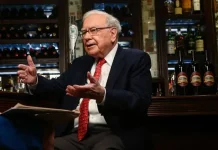
Federal Reserve Chair Jerome Powell said Friday the central bank is “prepared to raise rates further” as it continues its fight to bring inflation back to its 2% target.
Speaking at the Jackson Hole Economic Symposium in Jackson Hole, Wyo., Powell reiterated his message to markets from a year ago: The Fed is going to bring down inflation one way or another.”At last year’s Jackson Hole symposium, I delivered a brief, direct message,” Powell said. “My remarks this year will be a bit longer, but the message is the same: It is the Fed’s job to bring inflation down to our 2 percent goal, and we will do so.”Through the early months of 2023, many investors were bracing for a US recession and planning for the Fed to begin the process of lowering interest rates.In his speech on Friday, Powell instead offered two future paths for interest rates — flat or higher.”We have tightened policy significantly over the past year,” Powell said.”Although inflation has moved down from its peak — a welcome development — it remains too high. We are prepared to raise rates further if appropriate, and intend to hold policy at a restrictive level until we are confident that inflation is moving sustainably down toward our objective.”Given the magnitude of its rate hikes over the past 18 months, however, Powell added the Fed is “in a position to proceed carefully” as it mulls future actions.An unchanged targetWhile Powell noted inflation coming down in recent months has been a “welcome” development for the Fed, the Fed chair cautioned more progress will need to be made on this front.”[Two] months of good data are only the beginning of what it will take to build confidence that inflation is moving down sustainably toward our goal,” Powell said.Powell pointed to core PCE inflation reaching 4.3% in July after a reading of 4.1% in June, with the Fed chair citing estimates from recent CPI and PPI data to impute July’s figure. July PCE data will be officially released on Aug. 31.
“We can’t yet know the extent to which these lower readings will continue or where underlying inflation will settle over coming quarters,” Powell added. “Twelve-month core inflation is still elevated, and there is substantial further ground to cover to get back to price stability.”
Powell also noted that monetary policy “will likely play an increasingly important role” in bringing inflation down to 2% as pandemic-related distortions in the economy ease.Squelching speculation from some commentators in the run-up to this year’s Jackson Hole meeting, Powell also reiterated the Fed’s commitment to a 2% inflation target.”Two percent is and will remain our inflation target,” Powell said. “We are committed to achieving and sustaining a stance of monetary policy that is sufficiently restrictive to bring inflation down to that level over time.”In an op-ed published earlier this week, for instance, Jason Furman, chair of the Council of Economic Advisers under President Obama, argued the Fed “should be aiming to stabilize inflation below 3%” and then push its 2% target higher in the coming years.An ‘incomplete’ labor market adjustmentIn 2023, a strong US economy has presented a challenge to the Fed on several levels, with the Fed chair noting the overall economy “may not be cooling as expected.”And the strength of the labor market has been at the center of this challenge.While monthly job gains have cooled through the summer, Powell said Friday the labor market’s rebalancing “remains incomplete.””Labor supply has improved, driven by stronger participation among workers aged 25 to 54 and by an increase in immigration back toward pre-pandemic levels,” Powell said. “Indeed, the labor force participation rate of women in their prime working years reached an all-time high in June. Demand for labor has moderated as well. Job openings remain high but are trending lower. Payroll job growth has slowed significantly.”In turn, wage pressures have moderated.
But as inflation has moderated, real wages — or those adjusted for inflation — have begun to rise, increasing household purchasing power and helping bolster recent readings like strong retail sales data.”We expect this labor market rebalancing to continue,” Powell added. “Evidence that the tightness in the labor market is no longer easing could also call for a monetary policy response.”
























